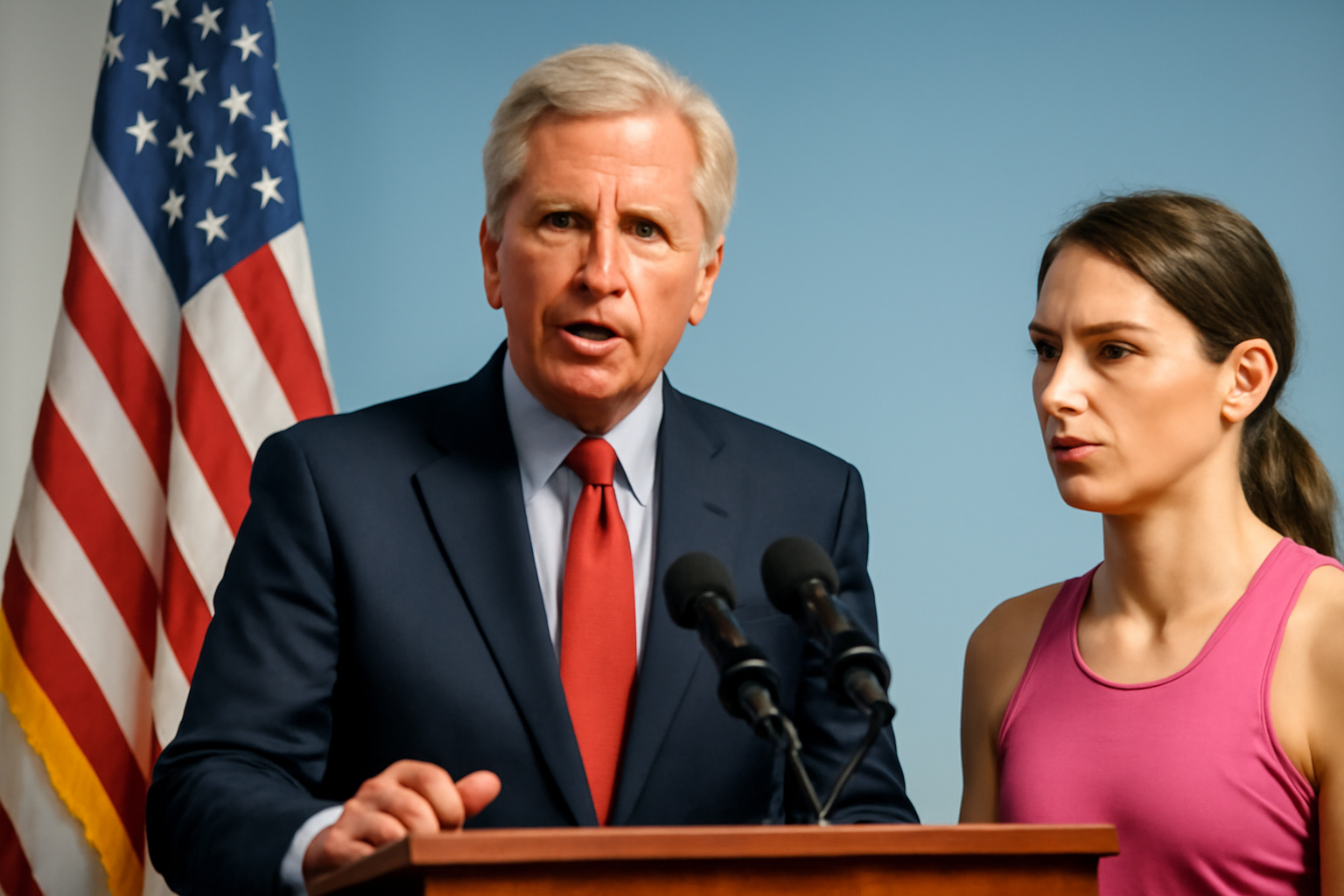
House Passes Bill Limiting Transgender Participation in Sports
The U.S. House of Representatives has passed a bill that seeks to ban transgender female students from participating in girls' and women's sports. The vote, which took place this past Tuesday, resulted in a narrow passage of the bill, 218-206, largely along party lines.
The proposed legislation, known as HR 28, aims to amend Title IX by stating that a person whose birth sex is male cannot participate in athletic programs designated for women or girls. This development follows recent statements by prominent political figures advocating for binary gender recognition.
Political Rhetoric and Reactions
Republican lawmakers, including the bill's sponsor Rep. Greg Steube of Florida, have framed the bill as a defense of traditional gender roles and protections for female athletes. During the floor debate, Steube declared that American society should not succumb to what he described as "immoral ideologies" challenging binary gender norms.
Critics of the bill, including Democratic lawmakers, argue that the bill is discriminatory against transgender individuals and lacks clarity on enforcement mechanisms. Opposition members have expressed concerns over potential privacy violations and the invasive nature of any measures that might be implemented to enforce the legislation.
Concerns Over Enforcement and Privacy
Democrats, including Rep. Mark Takano of California, have voiced opposition to the bill, claiming it could lead to intrusive practices such as physical examinations of student-athletes to verify gender, which would be both degrading and a violation of personal privacy. Rep. Takano referred to the bill as the "Republican Child Predator Empowerment Act," highlighting fears that it could endanger all female athletes by opening doors to inappropriate scrutiny.
Lawmakers also pointed to past incidents, such as a controversial investigation in Utah, where a cisgender high school girl was accused of being transgender after winning a track event, raising alarms over potential misuse of the bill's provisions.
Voices from the Community
Transgender athletes and advocates have also spoken out against the bill. Sadie Schreiner, an NCAA track athlete, emphasized that the bill does not protect women but rather serves as a direct attack on the transgender community. Schreiner invited senators to engage with transgender athletes to better understand their experiences.
On the other hand, the bill has been supported by figures like Riley Gaines, a former college athlete who has been vocal in opposition to transgender women competing in women's sports. Gaines was present during the House vote and praised the decision.
The Path Forward
The bill now proceeds to the Senate, where a similar proposal has been introduced by Senator Tommy Tuberville of Alabama. The legislative debate is expected to continue, reflecting broader national discussions about gender, sports, and inclusivity.
As the Senate prepares to review the bill, both supporters and opponents are mobilizing to influence the outcome. The decision will likely have significant implications for the future of participation in sports and the rights of transgender individuals in the United States.
Amidst the political debates, the LGBTQ+ community and allies continue to advocate for equality and the recognition of transgender identities in all aspects of life, including sports.
Subscribe to our newsletter to stay informed about developments in LGBTQ+ rights and sports, and to read inspiring stories from the community.
Related Posts
Triumphant Trans Woman Wins Legal Battle and Inspires Others to Stand Up for Their Rights
Breaking new ground: a landmark victory in transgender rights After battling in courtrooms and enduring endless challenges, Diana Portillo, a transgender woman, has secured a monumental victory in her decade-long fight against workplace discrimination. The result? Nearly $1 million awarded in a historic settlement. But this isn't just a win on paper—it represents a powerful precedent in combati [...]
Pride Month in Latin America: Protests and Demands for Equality
**Celebrating Pride and advocating LGBTQ+ rights in Latin America** Pride Month in Latin America was a lively mix where celebration met activism. Communities united, not just throwing a party but making a stand—demanding equality and pushing governments toward better protection and rights recognition. Throughout Latin America, pride events erupted in marches and cultural displays, each with a c [...]
Transgender Erasure Actions Implemented by National Park Service
```html Trump administration's impact on national park service and transgender recognition The Trump administration made notable moves in undermining transgender representation, which included directing agencies like National Park Service not include "T" and "Q" when they refered “LGBTQ” in any official communication. This move seems part a broader plan by this administration aimed at reducin [...]